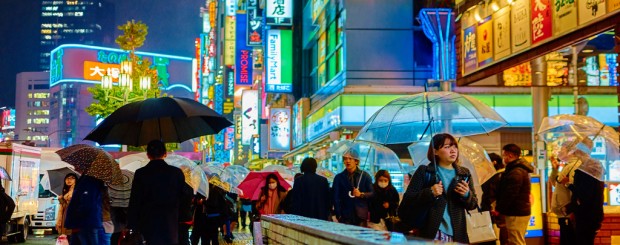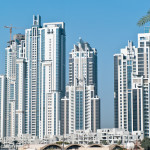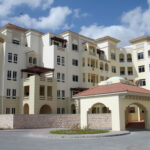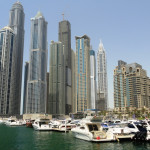Dubai vs. Tokyo Cost of Living
Dubai is quickly becoming the world’s favorite expat hotspot, providing stiff competition to traditional favorites such as Hong Kong, Tokyo, Singapore, London, and New York. Although the cost of living in the UAE has risen over the past year, pushing Dubai up the rankings from the 67th to the 23rd most expensive city in the world to live in (Mercer’s Cost of Living Survey 2015), it is still cheaper than Hong Kong, Tokyo, London, and New York.
A strong dollar and an ever-increasing demand for real estate are thought to be the prime factors contributing to the increase in rankings. The UAE Dirham is pegged to the dollar, pushing Dubai up in the rankings. Increases in expat rental accommodation have also contributed to this.
Nevertheless, Dubai still remains a more affordable city to live in than Tokyo, which ranks high amongst the top 20.
The greatest draw in Dubai for expats is the warm climate, abundant social life, and tax-free salaries -which result in higher disposable incomes. In Japan, which is currently home to over 2 million expats, a culture-rich existence and the opportunity to experience a very different way of life are very appealing to most expats.
In larger cities, such as the capital Tokyo, a large percent of the population speaks English and the demand for English-speaking language teachers is very high, making everyday life a little more stress-free.
Quality of Life
While Tokyo might be a lot more expensive for day-to-day living, it ranks top amongst cities that offer a very high quality of life to both residents and visitors (Monocle Magazine Quality of Life Survey 2015).
Factors that contributed to its top ranking include the enormous effort made by the city to be more eco-friendly, the high level of public services available to residents and visitors, as well as the large number of international routes that connect the city to other parts of the world.
Food and Dining
Food and drink in Tokyo have a reputation for being outrageously pricey, but this depends largely on where and what you choose to eat. If you live like most locals do, and eat at small family owned restaurants or indulge in some of Tokyo’s fabulous street food, you can easily get by on a modest budget.
However, if you choose to dine in one of the city’s upscale restaurants or hotels, you can expect to pay dearly for the experience. This is true of Dubai as well: dining out in one of the city’s well renowned posh sit-down restaurants can make a sizeable hole in your wallet, whereas smaller local restaurants are far more affordable.
What makes food in Tokyo more expensive for the regular person is the high price of groceries. Regular groceries in Tokyo are quite a bit more expensive than in Dubai, and can cost twice as much as local fare at a Dubai supermarket.
Everyday staples such as bread, fruit, and vegetables are much more expensive. This could perhaps be a result of the locations of the two metropolises. While Dubai is much more centrally located and easy to export to, Tokyo is less so.
In Tokyo, you’d get a lot less bang for your buck where grocery shopping is concerned compared to Dubai, where groceries average 30% less in price. Here are some tips on how to shop smartly for groceries in Tokyo.
Housing and Accommodation
Tokyo is the financial, political, and business hub of the country, resulting in a quarter of the Japanese population choosing to live here. The city is very densely populated and crowded, and with a restricted amount of land available for housing, rents are astronomically high in the capital, much more so than other smaller cities in Japan.
The population density of Tokyo is 2642 persons/km2, where as that of Dubai is just under 600 persons/km2, making land a premium commodity, resulting in higher land prices and rental rates for expats in Tokyo than in Dubai.
Although rental rates in Dubai are also on the rise, the imminent arrival of the Expo2020 has resulted in an explosion of construction and infrastructure projects in preparation for the big event, making supply and demand for housing in Dubai more balanced than in Tokyo.
Transportation
As with most metropolitan cities, both Dubai and Tokyo offer several modes of transportation to travel within the cities, as well as to and from other parts of the country.
While driving in and around Dubai is convenient, reasonably affordable, and the most popular form of getting around for most expats, driving in heavy traffic on expensive toll roads is not recommended for most foreigners in Tokyo (terrible parking problems further exacerbate driving issues in the capital).
The cost of 1 litre of petrol in Japan is about 4 times more than in Dubai, where petrol prices are highly subsidized by the government. In a country where petrol is often cheaper than drinking water, transportation (whether public transport or privately owned cars and taxis) is much cheaper than in Tokyo.
The best way to get around the Japanese capital is to use one of the many train lines that cover the city in a dense network, providing connectivity to most parts of Tokyo. For more information on the train and subway lines, click here.
Schools and Education
With the ever-increasing number of expats coming to the UAE, government investment in the education sector has increased sharply with several new schools and educational institutions opening up every year.
A global survey conducted by HSBC puts the UAE as the third most expensive country in the world, behind Australia and the United States, ahead of Canada, Japan, and Germany.
For most expats in the UAE, education is the second highest expense after housing. Most expats have little choice, as school fees are expected to rise after a new decision passed by the Dubai Executive council (DEC) allowing schools to raise their fees annually by 7%, based on their performance.
Healthcare and Insurance
Japan’s medical system is internationally renowned for being highly modern and efficient in services rendered to the public. The healthcare system is divided into two primary insurance systems: Employee’s Health Insurance and National Health Insurance.
All Japanese residents (including expats) with an address in Japan must apply for one of these, regardless of whether they have private insurance or not. Under these schemes, you pay only 30% of medical fees, and the rest is covered by the government.
Employee Health Insurance is a workplace-based system in which the cost of monthly premium is split between the employer and the employee. National Insurance is primarily for self-employed persons and students who do not have Employee Insurance. In both schemes, the premium is paid monthly and varies based on income.
In Dubai, the Dubai Health Authority has made health insurance a mandatory component for procuring a visa, so visitors know what to expect when coming to the UAE. Based on a new survey carried out by Pacific Prime, health insurance costs can be broken down for 3 plan types (inpatient only, inpatient + outpatient, and inpatient + outpatient + maternity).
The study compared 94 different countries, ranking the 20 most expensive and the 5 least expensive countries compared to the US, which comes in as the costliest country for purchasing international health insurance.
The UAE ranks in the top 20 most expensive countries, coming in at number 14 with an average cost of USD $8308, while Japan comes in lower at number 23 with an average cost closer to the $7,900 mark.
Broken down across four demographics, the average health insurance cost variations for Dubai and Tokyo are as follows:
Average cost for Single Health Insurance Plans (assumes a single, 37 year old male): Japan ranked 20th most expensive with an average cost of USD $3,716, with the UAE coming in at number 27 with an average cost of USD $3,600.
Average cost for Couples Health Insurance Plans (assumes a 37 year old male and female couple): UAE ranked 16th with an average cost of USD $7,924, with Japan coming in at number 20 with an average cost of USD $7,766.
Average cost for Family Health Insurance Plans (assumes a couple – male and female at 37 years old with 2 children aged 5 and 10 years): UAE ranked 18th with an average cost of USD $11,751, with Japan coming in at number 20 with an average cost of USD $11,633.
Average cost for Retiree Health Insurance Plans (assumes a single, 60 year old male): UAE ranked 13th with an average cost of USD $9,470, with Japan coming in at number 26th with an average cost of USD $8,964.
For expert analysis and assumptions, please refer to the report.








